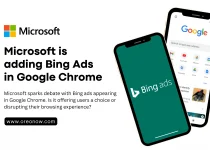Introducing WhatsApp Business Paid Messages: Enhancing Customer Reach and Engagement
WhatsApp Business, the popular messaging platform for businesses, is set to introduce a new paid message feature that enables businesses to send personalized messages to their customers.
This upcoming feature aims to provide businesses with a more effective way to engage with their audience and boost their reach. In this article, we will explore the key aspects of WhatsApp Business paid messages and discuss the potential benefits it brings to businesses.
Reaching a Wider Customer Base
With the introduction of paid messages, businesses will have the opportunity to reach a broader audience beyond their organic reach. These messages act as a means to catch the attention of customers who may not have seen their regular messages.
By targeting a larger number of customers, businesses can increase their brand visibility and attract potential customers who might have otherwise gone unnoticed.
Promoting Products or Services
One of the primary applications of paid messages on WhatsApp Business is the ability to promote products or services directly to customers. Businesses can craft compelling templates and send them out to interested individuals, providing an effective way to drive sales and generate leads.
With the ability to personalize these messages, businesses can tailor their promotions to suit the specific interests and preferences of their customers, thereby enhancing the likelihood of conversions.
Also Read: “Silence Unknown Callers” WhatsApp Introduces New Feature To Add More Privacy
Enhancing Customer Support
WhatsApp Paid messages also offer businesses a channel to provide efficient customer support. By leveraging this feature, businesses can address customer queries, resolve issues, and offer assistance promptly.
Customers will appreciate the convenience of having direct communication with businesses through WhatsApp, fostering a positive customer experience and strengthening brand loyalty.
Tracking Performance
To assess the effectiveness of their paid messages, businesses can utilize performance tracking features provided by WhatsApp Business. This allows businesses to gain insights into the success of their messaging campaigns, enabling them to optimize their strategies and improve engagement.
By monitoring key metrics such as open rates, click-through rates, and conversion rates, businesses can make data-driven decisions and refine their messaging to maximize results.
Using Paid Messages Wisely
While the paid message feature offers numerous benefits, it is crucial for businesses to use it judiciously. Since businesses will incur charges for each message sent, a strategic approach is essential to ensure cost-effectiveness.
Creating engaging and personalized templates, segmenting the target audience effectively, and monitoring campaign performance can help businesses make the most of their investment.
How much does a paid message cost?
- The cost of a paid message depends on the conversation category and the region.
- In the United States, the cost of a marketing message is $0.05 per 24-hour conversation.
- The cost of a utility message is $0.03 per 24-hour conversation.
- The cost of an authentication message is $0.01 per 24-hour conversation.
How do businesses send a paid message?
- Businesses need to create a template message, which is a pre-approved message that can be used for marketing, utility, or authentication purposes.
- Once a template message is created, businesses can send it to users on WhatsApp.
Our Words
WhatsApp Business paid messages present an exciting opportunity for businesses to expand their customer reach, drive conversions, and enhance customer support. By leveraging this feature, businesses can effectively promote products or services, engage with a broader audience, and track the performance of their messaging campaigns.
However, it is important to strike a balance and use the feature prudently to ensure optimal results while managing costs. As WhatsApp Business continues to evolve, this new feature empowers businesses to connect with customers on a more personal level, fostering growth and success in an increasingly digital business landscape.




One Comment